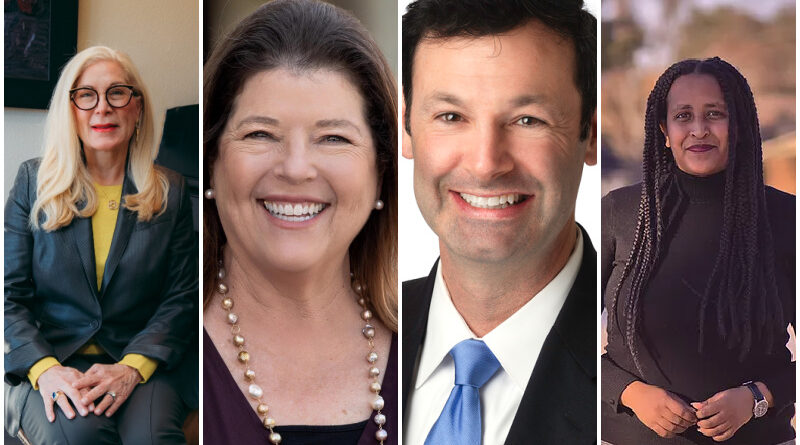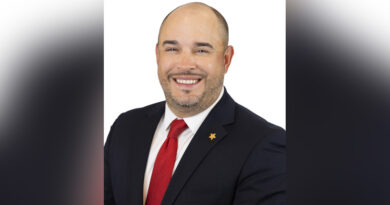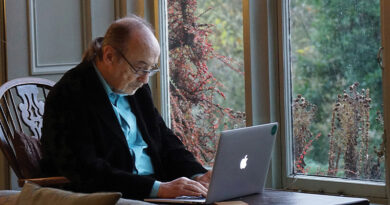On Your Ballot: District 11
Throughout the week, we’ll be sharing the answers provided by city council candidates to questions we posed, as well as questions readers had for the candidates.
Early voting will run from April 19 to 27. Election day is May 1. If no candidate achieves 50% of the vote in any of the races, a runoff will be slated for June 5.
Today we are sharing the answers provided by candidates for the District 11 spot, which is held by Lee Kleinman, who is term limited.
Real estate news site owner Candy Evans, who ran against Kleinman in 2017, has thrown her hat in the ring for District 11, as have first timers Jaynie Schultz, Hosanna Yemiru, and Barry Wernick.
Tomorrow, we will share the answers from District 6 candidates. Yesterday, we shared the responses from District 13 candidates. To follow all of our Dallas City Council election coverage, click here.
Note: At press time, Hosanna Yemiru had not provided her responses. Each candidate was sent a copy of the questionnaire via email, and a follow-up email if necessary.
Tell us about your own district. What are the best things about it? What are the struggles?
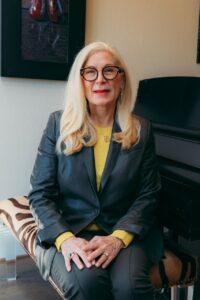
Evans: D11 is shaped kind of like Gumby: I live at the southern end, near Preston Royal, my daughter lives near the northern boundary of Arapaho. We have a wide diversity of housing and wealth, from exquisite single family homes on estate lots on Ricks Circle and up near Hughes Lane, in Preston Trails and Glen Abbey, to 30,000 apartment units including two Low Income Housing Tax Credit (LIHTC) units north of Midtown. We have some of the highest crime areas in the city up near Coit Road and Spring Valley. We have beautiful parks, creeks, and trails always populated with runners, bikers, or dog walkers like me. Those trails became Main Street during Covid-19. We have an amazing recreation center in Fretz Park and also the Churchill Recreation Center. We also have the benefit of a world-famous clinic, health research and exercise center in the middle of the district, just south of Midtown: Cooper Aerobics Center.
The struggles, apart from homes and shopping centers getting put back together after the tornado of October, 2019, are how to finish Midtown and re-build the Preston Road corridor north of LBJ to Beltline, which is an economic wasteland and was such prior to Covid-19.
Another struggle is the pan-handing and homeless: The city needs a comprehensive plan to combat homelessness. I would include comprehensive education on why you don’t give money and/or food to the homeless, rather direct them to resources. I strongly support passing a no panhandling ordinance. Third, I’d partner with private groups to help transition to a shelter, or one of the 2 new hotels the city just bought, or to wrap around services. Most homeless are service-resistant: an iphone app that allows people to donate products on their behalf is a band-aid. Most homeless prefer money over services.
Schultz: District 11 is a beautiful mix of vibrant neighborhoods with people from all over the world who genuinely care about each other and want to make sure the area stays safe and strong. Of course the best thing about the district is the people. I have spoken with hundreds of people who are kind and thoughtful and want the city to thrive. After suffering from the devastation of the tornado in 2019, the wind sheers months later, the pandemic, and freeze everyone is struggling to recover, learn and rebuild, but the optimism is visceral, people are excited for the future of District 11.
Wernick: I grew up in Preston Hollow. I attended Akiba Academy and St. Mark’s before continuing my higher education at the University of Texas and receiving my law degree from SMU. I moved back to the district 13 years ago because I wanted to get married and raise my family in the area I grew up. I’m honored to have endorsements of Mayor Tom and Laura Leppert and Honorable Ron and Nancy Natinsky. It was under their leadership 10 years ago that I saw my dreams coming true. I had just been married and I was looking to raise a family in what was one of the safest cities in the country. At that time, Dallas had a budget of $2 billion and 1,000 more police officers than we do today. But here we are ten years later. Our budget doubled to $4 billion and we have 1,000 less police officers. This isn’t what I envisioned for my family. In a city once known for prosperity, culture, and innovation is plagued with violence, increased crime, and homelessness. Our greatest challenge is uniting Dallas as a safe and secure environment by defending the police, supporting our first responders, and holding criminals accountable.
Pick one of those struggles you just mentioned. How would you address it? Please be specific.
Evans: Finish Midtown, which will serve as a catalyst to improve the commercial real estate between LBJ and Belt Line Road along Preston Road and help boost the tax base. Lack of leadership and investment sense on the part of Councilman Kleinman and Jaynie Schultz has resulted in millions of dollars of lost tax revenue these last eight years. Kleinman and Schultz were against city funded infrastructure. So the first thing I’m going to do as CM is become an expert in sewer lines. I’m going to figure out how to get the new sanitary sewer line that runs along LBJ done with city help so Midtown can proceed. Cost? About $3.5 million, or almost the same as what we gave Costco as an incentive to open the Coit Road store in 2017. This is the biggest difference between me and the other candidates: I have the business and real estate sense to know when to make a city investment that will create revenue and help us grow, rather than hold back on purse strings in the name of “cost savings”, stifling growth, and city revenue. City government exists to put in public infrastructure to catalyze development. The difference in the candidates approach to spending public funds in this election is crucial: I believe a city’s most important resources are public safety and infrastructure, and that is where I will prioritize spending.
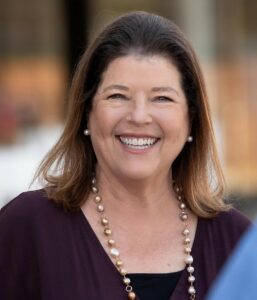
Schultz: Of course there is nothing we can do about the weather, but I would make sure our communications systems were varied and available, including texting, personal contact systems, and social media. I would have outreach on resources. Finally, I would see if we can have generators and full support systems at our area community/recreation centers.
Wernick: We can no longer afford to have more of the same, and everything stems from public safety. We must support our law enforcement and provide them with the resources they need to keep our city secure. I will never vote to defund the police and will always ensure they have the necessary resources to make Dallas safe and strong again. That is why I am the only candidate in District 11 that the Dallas Police Association has endorsed.
Street racing has been a hot topic citywide. What do you think of current efforts to address it, and what could the city do to improve those efforts?
Evans: We have been following this on CandysDirt.com since last summer. Street racers come from all backgrounds, age & ethnic groups, and income levels. Give them a stadium to race (as some have suggested), they don’t follow the rules. They seem to enjoy the thrill of racing without regard to the dangers.
The bill being passed by our state rep John Turner is a step in the right direction.
I do praise the new chief for his transparent and weekly updates on the problem … but we need shock and awe. We need to enact any constitutional additional penalties and coordinate with the District Attorney’s office to create a zero tolerance for this conduct with full jail sentences, car confiscation, and no plea bargains as a shock to these scofflaws. You have written the stories also: street racing is very dangerous and I’m terrified that someone is going to get killed.
Schultz: Chief Garcia is actively working to mitigate the problem. I will support his efforts to revitalize the street racing unit, work with neighborhood groups on monitoring and see if there are any creative street adaptations we could make for deterrence without road interruption.
Wernick: Last year the Dallas City Council and DPD came together in agreement over tougher penalties for street racing. Unfortunately, the dangerous activity still results in over a thousand arrests and monopolizing police resources, and threatening public safety. We need to focus on more city ordinances, increased police manpower, and stricter penalties.
Illegal street racing boasts an anti-police public sentiment and degrades the morale of the city and law enforcement. When we already have a thousand less officers than we did in previous years, they do not have enough resources to protect public safety and shut down illegal street racing – a breeding ground for more crime and violence. Dallas is facing unprecedented crime rates – every day we have 400 minors involved in sex trade, and coupled with criminal activities like street racing, all of which are connected through phone apps and social media. If we can reunite the public and police, we can develop different more aggressive ways to fight these crimes, such as a proactive cyber-crimes unit.
Homebuilders and others in the construction trades have been waiting months at a time for building permits. What is your understanding of the underlying cause, and what should the city do to address it?
Evans: Dallas has a chronic building permit system backlog. It has gone on for so long, it’s almost an institution. I call it Theater of the Absurd: the City doesn’t even have a permanent head building official: the current one is interim, and has been interim for a year. The city recently allocated $5 million to outsource processing permits to three different vendors over the next two years because of the backlog — 10 weeks or more to get a building permit in Dallas! The two-year old computer system cost millions yet doesn’t function — other cities get this right, why can’t Dallas? Builders are so frustrated they are taking projects to suburban cities as we speak. There is an obstructionist attitude at Jefferson that needs to change or frankly the entire department needs to go. The City manager should focus more efforts on prioritizing and correcting this.
Schultz: The permitting system is broken. We have been trying various bandaids but we need a complete overhaul with the solution being crafted in partnership with The Dallas Homebuilders Association, MetroTex, and other organizations that support the construction industry. We have the same to gain by this, high quality, safe construction.
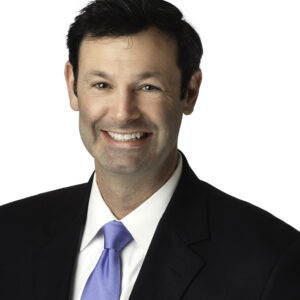
Wernick: There is plenty of land in our district we can build on, but we need to come to the right agreements with developers and builders, and right now they are facing excessive wait times for permits that are unacceptable. Builders are waiting six months and longer for a permit which is completely uncalled for. A lot of this I lay to blame on current leadership and the city manager. Instead of coming together for the sake of a united Dallas, leadership has resorted to pettiness and divisiveness and now we are losing some of our best companies and builders to areas like Frisco where they can access permits on a reasonable time of a couple weeks, not months. If you look at Dallas Midtown, one of the most valuable pieces of real estate in North Dallas, it’s an economic wasteland where we have lost out on millions of dollars of tax revenue. We need to address this problem by fixing the permit delays, working with developers on projects, creating safe environments for new construction, and speeding the process before we lose any more opportunities to outside cities.
Why do you think residents are distrustful of their city officials?
Evans: Because of corruption, which infuriates me and is one of the things I will work on. I believe we need leaders to step up and lead the City, stay out of hot button and divisive national/social issues. We need to take Dallas in the direction of increased public safety, security, infrastructure repair and maintenance, hold utilities responsible for lack of service and consumer neglect, and create a health/safety plan for any future pandemics or other emergencies. We do not need to be social police. For many years I believe Dallas has been kicking cans down the road, opting for grandiose plans while ignoring the basic services that make people wish to settle here and raise a family. We are in danger of becoming a city of high net worth dwellers behind security gates with lowest wage earners clustered south. The old school “Dallas Way” neglected South Dallas, permitted a mountain of shingles to pollute the neighborhood even while we let corruption pollute politics. All too often decisions are made in Dallas by a small, tidy group behind closed doors. Seven Mayoral candidates ran in 2019 vowing to bring ethics & reform to City Hall: two years later, not even a step in that direction. Six CMs have been indicted since 1995. I have a plan to bring in former federal prosecutors and the FBI to analyze where the gaps are that lead to so much corruption. And it’s time to break up the cabal of those who have worked together and keep on endorsing each other: that familiarity loop leads to corruption. You do not need an apprenticeship on the City Plan Committee or at the Dallas park Board to be a CM. (In fact, Jaynie Schultz was replaced by a journalist like me!) By electing candidates who will dig in, eliminate waste & duplicity, vastly improve district communication, work on a comprehensive city-wide plan for housing the homeless, and encourage and reward the building of developer driven work-force housing without the corrosive and corrupt effects of the bribery driven projects of the past. My business for 45 years has been communication and I will have innovative, forward-thinking ways to keep my constituents informed. My vast knowledge and contacts in the real estate industry will help us bring in new businesses and development. I am collaborative, data-driven, diligent and known to be a workaholic. I will get the job done.
Schultz: I do not think they are. I believe people are exhausted by the growing polarization in our political system. City officials who are honest, straightforward and responsive are appreciated and respected.
Wernick: Residents in my district, or residents anywhere, are cautious of trusting city officials as with any elected officials. Many of the current leadership are what I call “ weathervane” politicians, wondering what the Dallas Morning News or others are going to say before taking action, instead of having a backbone and doing the right thing. Since day one, public safety has always been my primary issue. My campaign is based on principle. I’m not going down to City Hall to make friends. I’m going to do the right thing, by carrying out my campaign platform. As your elected representative, I will work toward gaining trust with the community by doing exactly what I say I will, and therefore re-establishing open communications and transparency in City Hall.
If elected, would you reach out to your opponents to avail yourself of those strengths if the occasion arose?
Evans: Yes. I had asked Councilman Kleinman for a board appointment to the Citizen Police review Board which never materialized. There are four very intelligent, qualified candidates in this district election: I would definitely reach out to all of them.
Schultz: Possibly. Much would depend on their sincerity in getting involved. None have yet desired to serve the city, so if they asked to be involved I would certainly consider it.
Wernick: I am the Chair of the ADR Section of the Dallas Bar Association and I was recently appointed to the State Bar of Texas ADR Council. I’m an attorney-mediator. For the last decade I’ve devoted my practice to mediating and resolving disputes. Every day I bring people together from different perspectives ultimately uniting for a common goal of making Dallas safe and strong again. My leadership has already shown; my opponents are now taking my priorities and platforms and adopting it as their own, what’s a better example of leadership than that. If I can align my opponents to adopt my campaign priorities and platform as their own, I know I can bring people of different ideas and backgrounds together in City Hall.
If not elected, what will you do to help both your district (if you are running for council), and/or the city as a whole? Please be specific.
Evans: I would ask for a board appointment to try and achieve at least some of my objectives outlined above.
Schultz: I am the Board Chair of the CityLab High School Foundation, a DISD High School, so I will certainly continue my service to the school. I serve on the Valley View/Galleria Strategic Planning Task Force, the City of Dallas Welcoming Communities Task Force and am the liaison for the DISD new school at Valley View as well as the Building Blocks Committee for the Esperanza District. All of these roles I would hope to continue.
Wernick: In the event i’m not elected I’ll still be involved in the community and serving anywhere I can be useful. I will remain committed to protecting our community, supporting our police, and finding alternatives to prevent homelessness.
What is one of the best things about your district?
Evans: Our trails, in particular the Northaven Trail. People buy homes to be near these trails so they can jog and bike: we have a very health conscious District (what with Cooper Aeorbics, which I can walk to) and I often see folks walking home with a Starbucks or a Tom Thumb bag. It’s the ideal form of city living for those of us who love our greenspace. And it’s not very common to find neighborhoods like this in real estate. I’ve often said that we have the best of Lakewood here without the mosquitoes and much closer proximity to all points north, south, east and west.
Schultz: The sincere interest of the vast majority of our residents to build a happy life for their families.
Wernick: One of the best things about my district is the people. They are honest, kind, and hard-working that want to live in a prosperous and safe neighborhood. During the February freeze, I saw neighbors and community members open their doors to strangers, donate supplies and food, work together to fix heating and home appliances all out of the goodness of their hearts. The people of Dallas are resilient, caring, and the best part of this district. That’s why I believe together, we will make Dallas safe and strong again!

